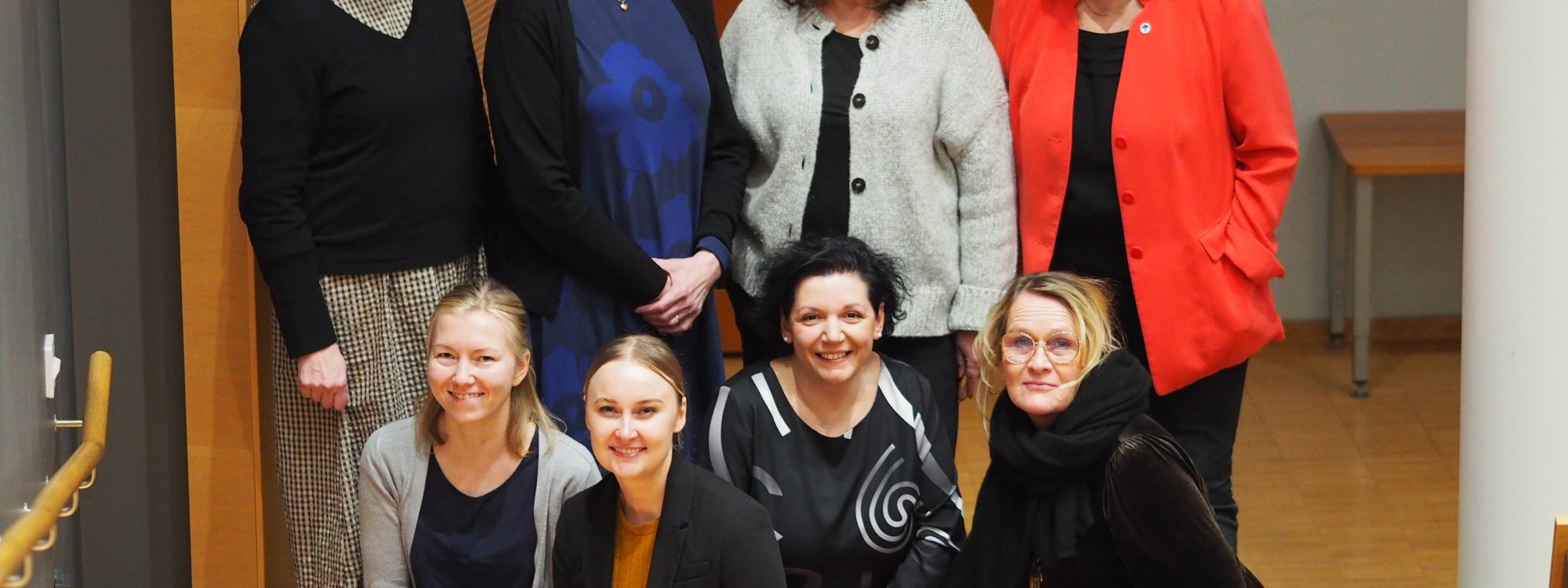Theoretical basis for the programme
Philosophical basis
The philosophical basis of Empowering Patient Education, EPE, emphasizes the patients’ right to know about their health, health-related problems, treatment, and care. The essential basis for patient education is knowledge of patients’ health: without knowledge patients’ action is difficult. Patients’ right to get information is prescribed by Finnish law (785/92). This means the special importance of ethics in EPE.
The philosophical basis of EPE is partly created in two EU-funded projects: Patients’ autonomy, privacy, and informed consent (1998-2001 Biomed) and Ethical codes (2002-2005).
EPE has its roots in the concept of empowerment and in social-psychological theories and constructive learning theory, but it has been developed for nursing and health care purposes. Empowerment is a level of experiencing power and strength in one’s own life and it is the basis for health.
In the future, there is an increased need for empowering patient education for several reasons.
Firstly, there is emphasis on the citizens’ and particularly the health care clients’ self-management, their empowerment and healthpromotion. This is due to shortening of the hospital stays, increasing ambulatory services, increase in long-term diseases and multidimensional health problems of the patients. This all gives emphasis on effective, individually tailored educational activities in health care organizations and in the society as a whole. It is also important in the collaboration between health care and social sector.
Secondly, there are more educational alternatives than before. These alternatives include the traditional face-to-face activities, as well as the use of different technological solutions. During last years, special emphasis has been given to the internet-based education, as well as the use of mobile technology for the patients. It is important to test different methods in different clinical fields for improving efficiency.
Thirdly, in many countries there are laws and/or ethical norms about the patients’ rights to knowledge about their own health and care. This is also true in Finland, where the right for information is clearly stated in the Act of Patients’ Status and Rights (785/1992). This ethical element of patient education challenges the nurses and other health care professionals to implement ethically strong care and educational solutions.
Fourthly, the socio-demographic change in populations means increase of the older population and multicultural groups and individuals. This gives new demands both for cognitive support, understanding of multidimensional health problems, health literacy and cultural understandings of health and empowerment.
Theoretical basis
Empowerment is the wholeness of human thinking and action for controlling one’s health/life.
Empowered patient has the ability to recognise their existing knowledge, knowledge expectations, is able to understand knowledge, make decisions and solve problems and to act for their own health and treatment. Even in very complicated clinical situations (like surgical treatment) patients themselves experience some power to act and improve their health and care.
Patients’ experiences can be supported by patient education. Health care professionals need to understand the knowledge expectations of patients, to be able to support patients’ understanding and decision making and to help patients to evaluate their own level of empowerment. Empowerment cannot be given to anybody, but professionals can support patients in their own empowering process. Patient education is a nursing intervention.
In patient education, the origin of EPE is in the education of patients with long-term health problems, but it has used also in operational fields, like in orthopedics and health counseling.
The empowering knowledge is composed of patients´ previous knowledge, knowledge expectations and received knowledge (Leino-Kilpi & Vuorenheimo, 1994, Leino-Kilpi, Mäenpää & Katajisto, 1999, Heikkinen et al., 2007, Rankinen et al., 2007). The empowering knowledge is devided into six dimensions: bio-physiological (i.e. illness, symptoms, treatment and complications), functional (i.e. mobility, rest and nutrition), experiential (i.e. emotions and hospital experiences), ethical (i.e. rights, duties and participation in decision-making), social (i.e. families, other patients and patients unions), financial (i.e. costs and financial benefits) (Leino-Kilpi & Vuorenheimo, 1994, Leino-Kilpi et al., 1999, Rankinen et al., 2007).
See: Pekonen, A., Eloranta, S., Stolt, M., Virolainen, P., & Leino-Kilpi, H. (2020). Measuring patient empowerment – A systematic review. Patient education and counseling, 103(4), 777–787. https://doi.org/10.1016/j.pec.2019.10.019.
Kuokkanen, L., & Leino-Kilpi, H. (2000). Power and empowerment in nursing: three theoretical approaches. Journal of advanced nursing, 31(1), 235–241. https://doi.org/10.1046/j.1365-2648.2000.01241.x.
